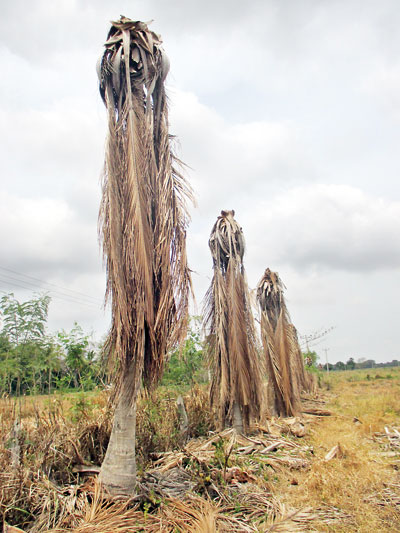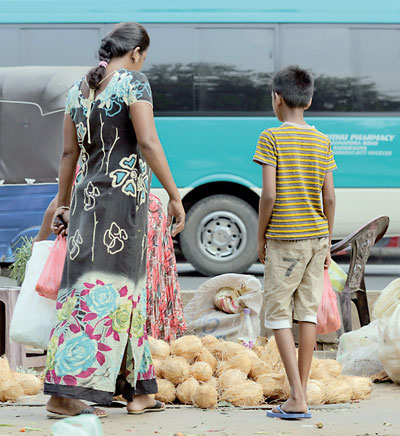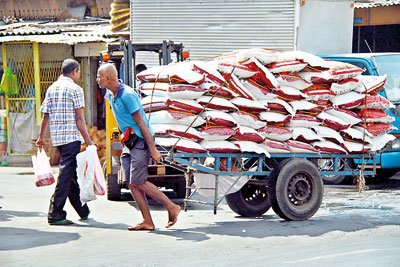News
Coconut kernel and rice imports to overcome shortage
Government is planning to import coconut kernel to tide over the demand for coconut nuts during the festive season.

The prolonged dro ught has led to a shortfall in nuts produced
The Plantations Ministry said applications had been called for from concerned industries for the import of the coconut kernel.
According to the ministry, around ten industries had already applied for imported kernels.
Secretary, J.A. Ranjith said that there was no limit to quantities to be imported and that any company could import kernel within defined conditions specified.
The conditions include adherence to quarantine requirements in keeping with customs regulations.
Meanwhile the Coconut Research Institute (CRI) said they had no objection to the import of the kernel in its frozen form.
Chairman Jayantha Jayawardena said that frozen kernel imported into the country will not have a detrimental effect on the coconut industry.
‘Coconut kernel imported in the frozen form is devoid of bacteria and insects that could harm the industry,’ he said.

The common coconut is fast becoming a luxury item
An earlier plan in July to import unhusked coconuts from Indonesia and the Phillipines had to be abandoned due to concerns raised by stakeholders in the industry that importing the whole nut could bring in mite infection to the coconut plantations in the country.
Under the Plant Protection Ordinance No.165/2 of November 1981 import of unhusked coconuts is totally prohibited.
Jayawardena said import of kernel is permitted solely for use by industries involved in the the manufacture of food and related products for the export market.
‘The imported kernel should not be used for manufacture of food or related products to the local market. All products manufactured with the imported kernel should go out of the country,’ he said.
He added the severe drought which affected the country over the past two years, had adversely affected coconut production in addition to lowering the weight of the kernel by around 30%.
The Hector Kobbekadawa Agrarian and Research Training Institute (HARTI) said prices of coconut in the local market were increasing by the day.
Marketing Food Policy & Agriculture, Research Officer, N. Wijesuriya said last week the retail price of a large nut was in the range of Rs. 95/- to Rs. 110/- in and around Colombo and its suburbs. Smaller nut were sold at Rs.80/- to Rs.90/-.
‘This is an increase of around 70% over prices last year’ he said.
Meanwhile Government has also decided to import 200,000 metric tonnes of rice from India to tide over the seasonal demand. Rice is expected to be imported in stages to tide over the shortfall in demand during the festive season.
According to Wijesuirya, the import of rice will not affect the local farmers as the demand for locally produced rice was high among consumers. ‘Only ‘White Kekulu Rice’ and other low quality grain would be imported,’ he said.
He predicted a fall in the price of rice by January 2018 when paddy from the the Maha season in the east is expected.
He said the harvest from Batticaloa was expected first and would be followed by that from the Amparai region.
‘The crops seems satisfactory and will bring down the prices,’ he said.
Last week according to the HARTI, the wholesale price of local rice varieties stayed static. A kg of local Samba was sold at between Rs.100/- to Rs.110/- while the local Nadu was sold at between Rs.90/ – 95/- per kg; Red rice and raw White rice cost Rs.83/- and Rs. 90/- per kg.

Above stocks of imported rice being transported to the marketplace and below popular brands of rice being unloaded


